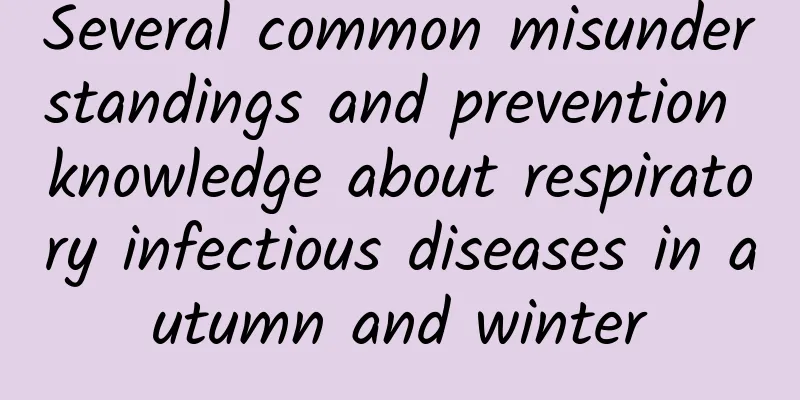The spring breeze blows, the flowers smile, why is your nose so noisy?

|
Spring is the most beautiful season of the year, with everything coming back to life, birds singing and flowers blooming. But some people feel runny noses and itchy eyes as soon as they step out of the house. This is not the magic of spring, but your body's "protest" - spring flower and plant allergies. What are allergies? Allergies, in simple terms, are when the body's immune system treats something harmless as a "bad guy" and attacks it. When these "bad guys" are tiny particles of certain flowers and plants, your nose and eyes become a battlefield, and various symptoms follow. 2. Clinical manifestations 1. Nose problems: nasal congestion, sneezing, and runny nose are all common "battle conditions". 2. Eye problems: Itchy, tearful, red and swollen eyes, and sometimes blurred vision. 3. Skin problems: rash, urticaria, skin itching, etc. 3. Treatment Methods 1. Get away from allergens: Now that you know which flowers and plants are causing the problem, try to avoid contact with them as much as possible. Wear a mask and glasses when necessary. 2. Drug treatment: Anti-allergic drugs such as chlorpheniramine and clarithromycin can help relieve symptoms. But it is best to use them under the guidance of a doctor. 3. Immunotherapy: For some people with severe allergies, doctors may recommend immunotherapy, which is to let the body gradually adapt to these flowers and plants, thereby reducing allergic reactions. 4. Prevention 1. Do not keep allergenic flowers and plants at home: such as certain varieties of azaleas, tulips, daisies, etc. 2. Take protective measures when going out: such as wearing masks, glasses, etc. 3. Enhance immunity: A balanced diet, moderate exercise, and maintaining good work and rest habits can all help improve immunity and reduce allergic reactions. 4. Pay attention to personal hygiene: Wash your face and hands immediately after returning home to reduce contact with allergens. V. Conclusion Although spring flower and plant allergies are annoying, as long as we understand them and take appropriate measures to prevent and treat them, we can happily get in touch with nature and enjoy this vibrant season. Just like dealing with a difficult neighbor, as long as we understand its habits, we can find a way to coexist peacefully. So, next time you walk on a path in spring, you don’t have to worry about "running noses and itchy eyes"! 6. Tips 1. Allergies can also be "false": Sometimes, you think you have allergies, but it may actually be a cold or other illness. If the symptoms persist or worsen, it is best to go to the hospital for a check-up. 2. Children's allergies: The incidence of allergies in children is very high, so parents should pay special attention to it. In addition to avoiding contact with allergens, parents should also keep the indoor air clean and pay attention to children's personal hygiene. 3. Allergies and heredity: Allergies have a certain genetic tendency. If there is a history of allergies in your family, you may be more likely to have allergic reactions. In short, although spring flowers and plants are beautiful, we cannot ignore the "trouble" they may bring. Let's make full preparations and have a pleasant date with spring! |
>>: Is it true that the more you eat these foods, the darker your skin will be?
Recommend
Symptoms of fetal arrest at 50 days of pregnancy
Fetal growth retardation mainly refers to the sit...
How long does it take to age after ovarian removal?
Important reminder: In recent years, the incidenc...
How long does the egg survive after it is released?
The egg generally only lives for 48 hours after b...
Medicine Baby Test | Does the baby need fluid rehydration when he has diarrhea?
There are many causes of infectious diarrhea in c...
How long after a biochemical pregnancy can you have sex?
Chemical pregnancies are common among women of ch...
Can I eat ginger after medical abortion?
After a medical abortion, a woman's body will...
What can routine leucorrhea tests reveal?
Routine inspection and testing of leucorrhea has ...
What causes breast hyperplasia?
Currently, more and more young women are sufferin...
Why are my periods getting less and less?
Women have been worrying about their menstrual pe...
The impact of gasoline on human health must be prevented
With the rapid development of modern industry, ga...
When is the best time to recover after childbirth?
Whether it is a caesarean section or a natural bi...
What is the reason for female urine blood
Blood in urine refers to blood in the urine. It i...
How long after TCT can I have sex?
Nowadays, many female friends go to the hospital ...
Does COVID-19 recovery mean recovery? What else should we pay attention to? Let's listen to Liu Qingquan's advice!
How to use medicine scientifically after infectio...
Picture of gestational sac at 40 days of pregnancy
For the gestational sac at 40 days of pregnancy, ...









